-
‘The invasion of Afghanistan was a fraud’: an interview with John Pilger
The Taliban were a convenient target to satisfy a political lust for revenge for 9/11.
-
China calls for investigation into U.S. massacres of civilians in Afghanistan
On Wednesday, September 1, Chinese Foreign Affairs Ministry spokesperson Wang Wenbin said that the massacres of civilians committed by the US military in Afghanistan during 20 years of occupation and war should be fully investigated.
-
Taliban faces US destabilization from within
At the weekly briefing in Moscow on Thursday by the Foreign Ministry spokesperson Maria Zakharova stated that Russia will consider recognising Afghanistan’s new authorities once an inclusive government is formed in the country.
-
Afghanistan withdrawal is a shock to the Israel lobby
Military occupations excite violent resistance throughout history. The U.S. has given up the fantasy of transforming Afghanistan. This removes Israel’s cover for its occupation and is generating panic among Israel’s friends.
-
John Pilger: Afghanistan, the great game of smashing countries
In 2010, I was in Washington and arranged to interview the mastermind of Afghanistan’s modern era of suffering, Zbigniew Brzezinski. I quoted to him his autobiography in which he admitted that his grand scheme for drawing the Soviets into Afghanistan had created “a few stirred up Muslims”. “Do you have any regrets?” I asked. “Regrets! Regrets! What regrets?” – John Pilger
-
As Kabul is retaken, papers look back in Erasure
Corporate media coverage of the U.S. withdrawal from Afghanistan and the collapse of the country’s U.S.-backed government has offered audiences more mystification than illumination.
-
Imperialism and its discontents
On the night of 14 August 1791, enslaved Africans gathered in the Bois Caïman forest and planned the revolt that would begin the Haitian Revolution. Last week, on the 230th anniversary of this meeting, Haiti was hit by an earthquake that has upturned the lives of more than a million people.
-
Create two, three, many Saigons. That is the watchword: The Thirty-Third Newsletter (2021)
On Sunday, 15 August, Afghanistan’s President Ashraf Ghani fled his country for Uzbekistan. He left behind a capital city, Kabul, which had already fallen into the hands of the advancing Taliban forces.
-
“Revelations of Carter’s Former Advisor : ‘Yes, the CIA entered Afghanistan before the Russians…’” (1998)
Question: The former director of the CIA, Robert Gates, stated in his memoirs that the American intelligence services began to aid the Mujahiddin in Afghanistan six months before the Soviet intervention. In this period, you were the national security advisor to President Carter. You therefore played a key role in this affair. Is this correct?
-
Make no mistake, the U.S. military will continue to thrive after Afghanistan
There are too many careers and too much money tied to American power projection. So expect it to shift, not recede from the stage.
-
U.S. defeat in Afghanistan—A contrast with the Soviet experience
The U.S. has been defeated today in Afghanistan not by a super power with an advanced military, but by a rag-tag army of fanatical locals who perfected and consolidated their fanaticism under U.S., Saudi and Pakistani tutelage in the 1980s to fight the Soviets.
-
Geopolitics, profit, and poppies: how the CIA turned Afghanistan into a failed narco-state
The war in Afghanistan has looked a lot like the war on drugs in Latin America and previous colonial campaigns in Asia, with a rapid militarization of the area and the empowerment of pliant local elites.
-
U.S. defeat in Afghanistan—A contrast with the Soviet experience
As`ad AbuKhalil says Western media never regarded the U.S. involvement for what it really was.
-
United States withdraws from Afghanistan? Not really
The U.S. invasion of Afghanistan in October 2001 was criminal. It was criminal because of the immense force used to demolish Afghanistan’s physical infrastructure and to break open its social bonds.
-
Almost everything Biden said about ending the Afghanistan War was a lie
While Americans hailed the announcement that the U.S. would withdraw troops from Afghanistan after nearly two decades of war, President Biden left out the most important details about the war and how it will in fact continue.
-
In Afghanistan, American Troops patrol the same routes their fathers did
Thousands of U.S. soldiers continue to pace and patrol exactly the same routes as their predecessors did in 2001, fighting a seemingly endless conflict that both the American and Afghan public have long since soured on.
-
U.S. sanctions ICC prosecutor for investigating its troops
U.S. Secretary of State Mike Pompeo made the announcement in response to an investigation on U.S. military crimes in Afghanistan.
-
Don’t threaten Afghans—it will be counterproductive
The principal deputy assistant secretary at the Bureau of South and Central Asian Affairs (SCA) in the U.S. State Department, Alice Wells, dropped a bombshell on the Afghan government and the country’s political elites on April 4—and caught the international donors by surprise, too—by linking all aid to Afghanistan to the formation of an inclusive government in Kabul.
-
Has America reached its endgame in Afghanistan?
In an extraordinary statement titled “On the Political Impasse in Afghanistan,” Washington has admitted to the failure of Secretary of State Mike Pompeo’s mission to Kabul on March 23, which was taken up to heal the political rift among Afghan politicians and to urge them to form an inclusive government so as to implement the peace agreement signed in Doha on February 29.
-
The prospect of peace in Afghanistan is real—and Pakistan is the key player
The U.S.-Taliban peace agreement signed in Doha on February 29 must be put in proper perspective. Indeed, there can’t be two opinions that the curtain is coming down on what U.S. President Donald Trump called the “endless war” in which America squandered away over a trillion dollars and lost thousands of lives with no victory in sight. Equally, without a doubt, this is the finest hour of Pakistan’s statecraft since the country’s creation in 1947.


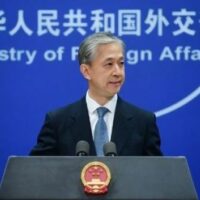
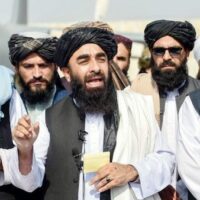

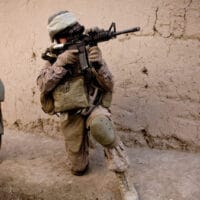
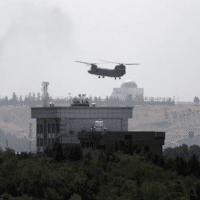
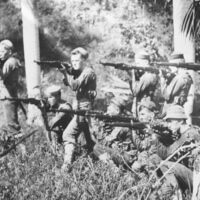
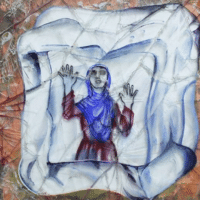

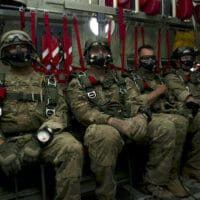
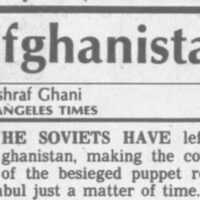

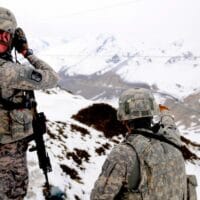
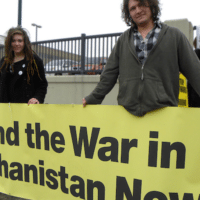




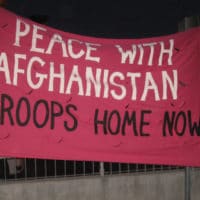
![Secretary of State Michael R. Pompeo participates in a signing ceremony in Doha, Qatar, on February 29, 2020. [State Department photo by Ron Przysucha/ Public Domain]](https://mronline.org/wp-content/uploads/2020/03/peace-signing-200x200.jpg)